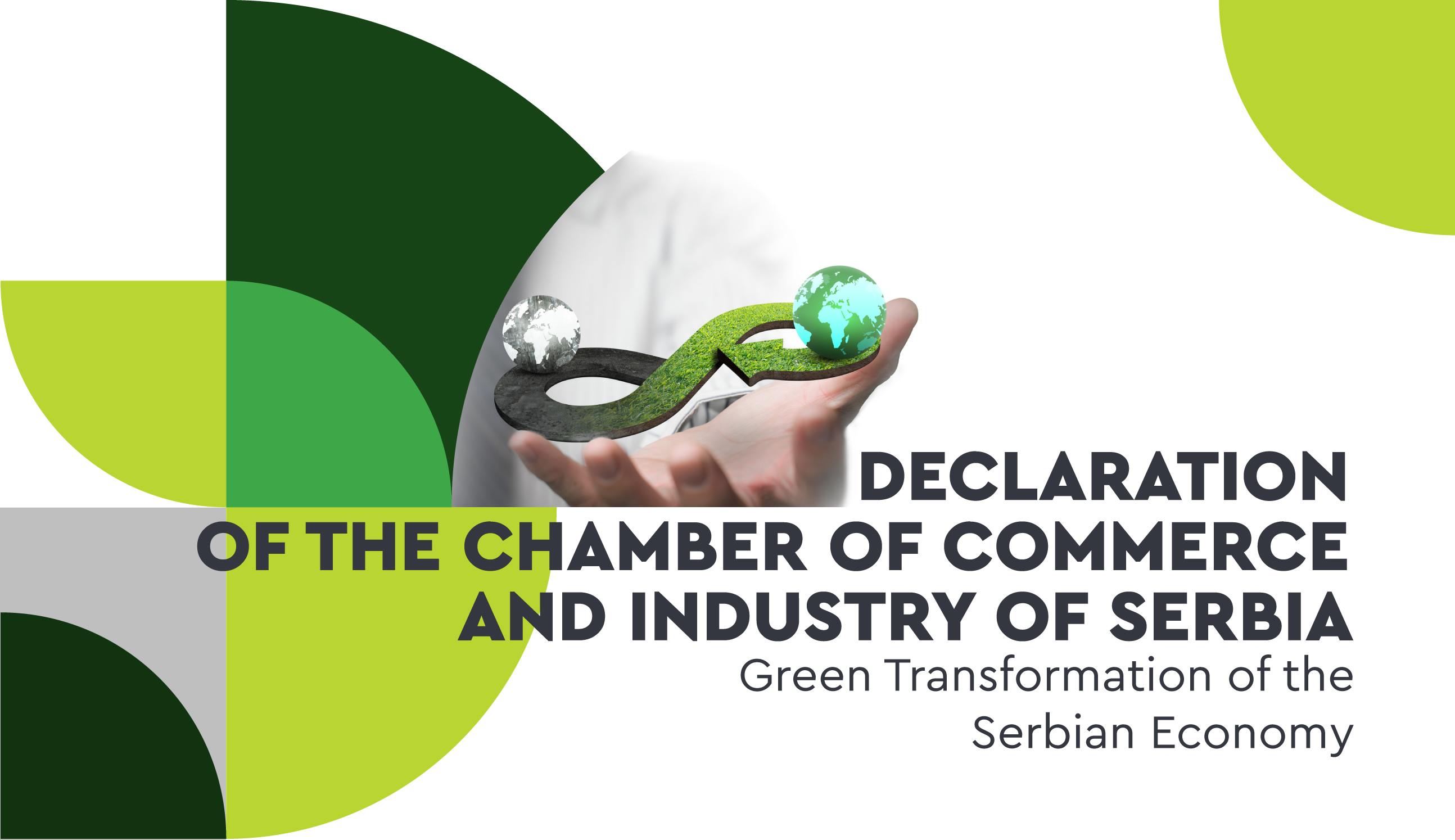Green Declaration: CCIS Partner in the Transformation of the Serbian Economy
Dec 5, 2022
Chamber of Commerce and Industry of Serbia has prepared and published the Declaration on the Green Transformation of the Serbian Economy with a goal to encourage and support companies in the process of transitioning to a circular business model while preserving competitiveness and efficiency, said Mihailo Vesović, Director of the Sector for Strategic Analysis, Services, and Internationalization of CCIS.
"Our companies have to adapt their business models because their partners in the EU will demand this, whether they are exporters or involved in the supply chains of foreign partners. On the other hand, banks will adapt their risk analysis methodologies due to ESG standards, EU taxes, and different business models of companies, as well as due to changed regulations. The pressure on companies to adapt their operations to the green agenda will also come from customers and consumers who are also rapidly becoming more aware. "The economy still has a few years to adjust, but that process must start immediately," Vesović said.
Fast-paced changes in the EU markets, our most important foreign trade partner, include the transition from a linear to a circular model, energy efficiency, the adoption of EU standards related to the amount of recycled raw materials used, the control of greenhouse gas emissions and new non-financial reporting standards, including carbon accounting, which will very quickly condition the competitiveness of domestic companies.
"Every product that has a useful value should be recycled, and the ultimate requirement in terms of energy efficiency is the reduction of carbon dioxide emissions, not only for moral or ecological reasons but also for reasons of preserving competitiveness," Vesović pointed out. According to his words, tomorrow the economy will not be able to export to the European Union at competitive prices if the products are not produced in accordance with the conditions of energy efficiency, carbon neutrality, and circular economy.
"Every product that has a useful value should be recycled, and the ultimate requirement in terms of energy efficiency is the reduction of carbon dioxide emissions, not only for moral or ecological reasons but also for reasons of preserving competitiveness," Vesović pointed out. According to his words, tomorrow the companies will not be able to export to the European Union at competitive prices if the products are not produced respecting energy efficiency, carbon neutrality, and circular economy principles.
We offer companies a dynamic process of knowledge and practice transfer. We will advocate for the creation of a regulatory framework to accelerate transformation and access to finance and advanced technological solutions that our industry needs. It is important that the green transformation becomes the first topic in scientific and professional communities, in the universities, because changes towards a low-carbon and circular economy are a complex and demanding process," said Vesović.
The green transition should enable many new jobs in Serbia, the region, the EU, and globally, and this process puts us under obligation for future generations and to preserve resources. Serbia has committed itself to these processes of change through international agreements, including the Green Agenda for the Western Balkans.
CCIS wants to participate in advising and educating companies in the field of circular economy, carbon accounting, waste treatment, and others, and we have already started working with companies in the field of education and training through the Circular Economy Hub and the Circular Academy, and we have great examples of good practices from domestic companies as well as foreign companies that have brought good experience to Serbia, adds Vesović.
LATEST NEWS
